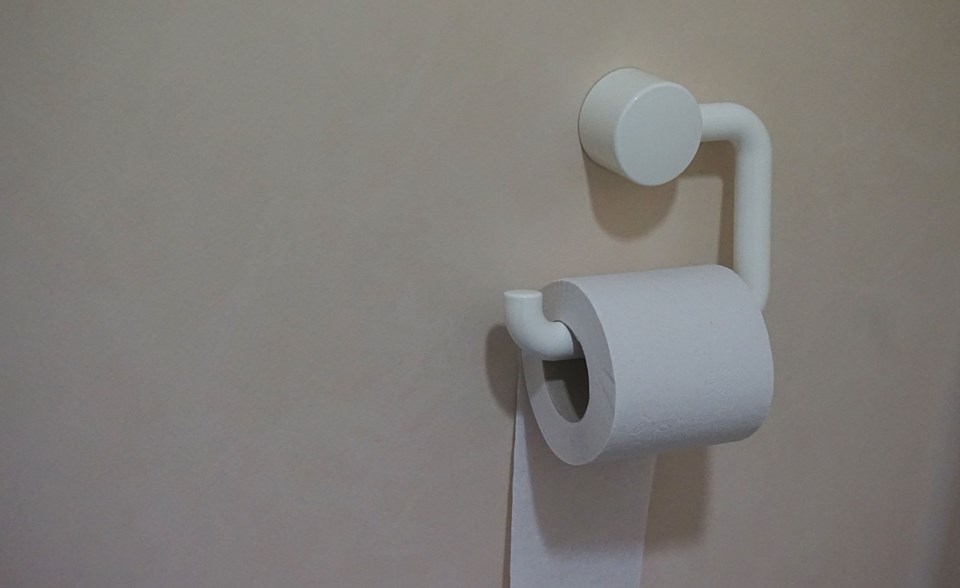If you've spent any time in Costco you won't be surprised to hear that its biggest selling item is ... toilet paper. Given the retail giant's outsized influence on both downstream consumer behaviour (because bargain!) and upstream supply chains (because volume!), this particular piece of trivia is worrisome given that most TP that Costco sells contains no recycled content, and is made from 100 per cent virgin pulp fibre, itself derived from Canada's boreal forest. Thus, it's no exaggeration to state—as a recent petition on SumofUs.org does—that "toilet paper is destroying Canada's vast and majestic old-growth Boreal forests."
First, a word about the boreal. In Canada it covers over a billion acres—60 per cent of the country—from Newfoundland to the Yukon. It's also home to over 600 Indigenous communities whose cultural identities are tied to this ecosystem and its dwindling population of species like caribou and moose. Canada's boreal is also essential nesting ground for billions of migratory birds.
The circumpolar boreal of Canada, Scandinavia, Russia and Alaska serves another key function: carbon storage—sequestering more per hectare than any forest type, and more than all currently accessible oil, gas, and coal reserves combined. Canada's share alone represents 12 per cent of world carbon stores, and each year the region annually draws down an amount of atmospheric CO2 equivalent to the yearly emissions of 24 million cars.
Despite its crucial litany of cultural, ecological and carbon-cycle climate function, over 28 million acres of Canada's boreal—an area roughly the size of Pennsylvania—were mowed down to make toilet paper from 1996 to 2015; 90 per cent of it was clearcut, which will require over a century to regenerate.
According to a February report from the Natural Resources Defense Council and Stand.earth—"The Issue with Tissue: How Americans are Flushing Forests Down the Toilet."— Canada holds a shocking third place in intact forest loss, trailing only Russia and Brazil to account for 15 per cent of global loss from 2000 to 2013.
This eye-popping trend is little publicized. Worse, most of it is happening to supply America's voracious appetite for toilet paper. Due to decades of hard-sell marketing around toilet paper softness, Americans are now unwittingly to blame for our disappearing boreal forest. Although the country claims just over four per cent of world population, it wipes up more than 20 per cent of global tissue output. The average four-person American household uses north of 220 kg of TP each year.
Major toilet paper brands have refused to use more sustainable materials, the report suggests, because Americans are more concerned than the rest of us about ideal toilet paper texture. But manufacturers needn't use solely virgin pulp fibre—pulp can also be made from non-wood alternative fibres like fast-growing bamboo, and agricultural residues like wheat straw and sugar cane. While all tissue producers should aim to maximize use of postconsumer recycled content, properly sourced alternative fibres are a viable, sustainable substitute for virgin wood pulp.
The report notably offers a report card for brands viz environmental impact. Those that use recycled paper and alternative fibres—like Seventh Generation and Natural Value—received an "A." But the popular quilted paper brands score badly, with Charmin Ultra Soft, Kirkland Signature (Costco's big brand) and Angel Soft all receiving "F."
The companies with the largest market shares—Procter & Gamble, Kimberly-Clark, Georgia-Pacific—rely almost exclusively on virgin pulp for their household tissue brands. But, as the report notes, they also "... have the power to make a significant difference for the future of our world's forest ... Recycled content and alternative fibers are readily available solutions, and these large companies need to dedicate their substantial R&D budgets to tackling the problems their products cause for the planet. In the meantime, consumers can push for change with their pocketbooks, buying only those tissue products that minimize their impact on forests. Forests are too vital to flush away."
With consumers seeking more sustainable products but manufacturers not acting, retailers might step in. Given the volume it sells, a switch by Costco to a benchmark 50 per cent post-consumer recycled materials (or alternative fibres) would make a world of difference to the boreal forest. As the petition urges, like so many other companies it's high time Costco helped end wasteful and destructive practices to put the planet ahead of profits.
The petition to Costco can be found at actions.Sumofus.org. You can also check out the Issue with Tissue report and its scorecard for toilet paper, paper towels and facial tissue here.
Leslie Anthony is a science/environment writer and author who holds a doctorate in connecting the dots.
Go here for the original article.


.png;w=120;h=80;mode=crop)
